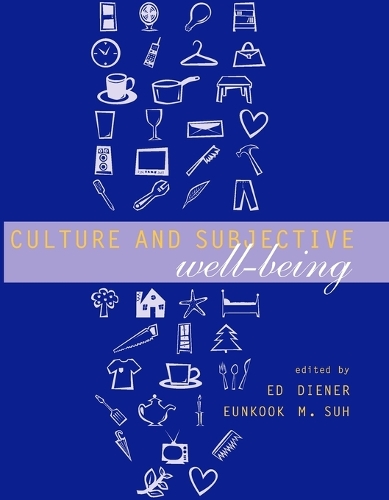
Culture and Subjective Well-Being
(Paperback)
Publishing Details
Culture and Subjective Well-Being
By (Author) Edward Diener
Edited by Eunkook M. Suh
MIT Press Ltd
MIT Press
24th January 2003
United States
Classifications
Professional and Scholarly
Non Fiction
Social groups, communities and identities
152.4
Physical Properties
Paperback
366
Width 178mm, Height 229mm, Spine 17mm
703g
Description
The question of what constitutes the good life has been pondered for millennia. Yet only in the last decades has the study of well-being become a scientific endeavour. This book is based on the idea that we can empirically study quality of life and make cross-society comparisons of subjective well-being (SWB). A potential problem in studying SWB across societies is that of cultural relativism: if societies have different values, the members of those societies will use different criteria in evaluating the success of their society. By examining, however, such aspects of SWB as whether people believe they are living correctly, whether they enjoy their lives, and whether others important to them believe they are living well, SWB can represent the degree to which people in a society are achieving the values they hold dear. The contributors analyze SWB in relation to money, age, gender, democracy and other factors. Among the interesting findings is that although wealthy nations are on average happier than poor ones, people do not get happier as a wealthy nation grows wealthier.
Reviews
"Much more research remains to be done... before we can be confident that [subjective well-being] gives us a cross culturally valid means for judging the success of a society. That this volume marks an important step toward that goal is, however, beyond doubt." - Neil Levy, Metapsychology
Author Bio
Ed Diener is Professor of Psychology and head of the Subjective Well-being Laboratory at the University of Illinois. Eunkook M. Suh is Assistant Professor of Psychology and Social Behavior at the University of California, Irvine.
